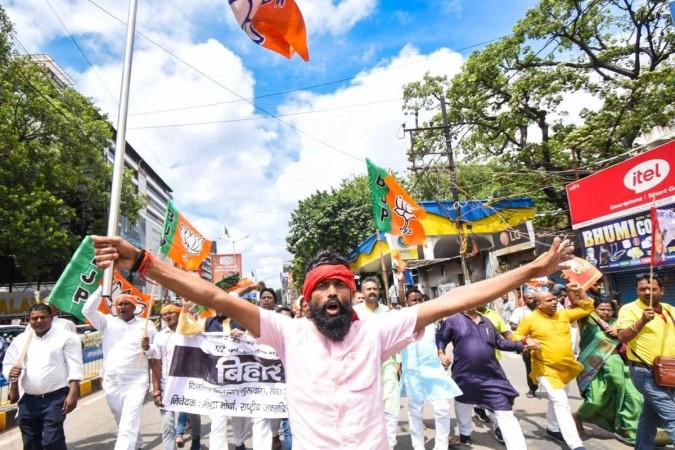| |
| BJP`s Bihar playbook: religion, repression and polarization |
| |
| |
 |
| |
| |
| MT Desk: The 2025 Bihar elections have emerged as more than a state-level contest; they are a reflection of the evolving political doctrine of Bharatiya Janata Party (BJP) — one that blends religion, repression and the careful construction of external threats to consolidate power. Bihar, historically a site of social movements and caste politics, has now become the testing ground for a new experiment in political control and ideological uniformity.
In recent months, the BJP`s campaign rhetoric in Bihar has undergone a notable shift. Development, once the centrepiece of Modi-era politics, has been quietly replaced by the language of identity and grievance. The emphasis has moved from vikas (development) to virasat (heritage), and from governance to faith. The party has perfected the art of merging religious symbolism with political strategy, invoking the imagery of Hindu pride, cultural revivalism and national security to appeal to voters.
The shift is deliberate. Bihar, with its entrenched caste divisions and fragile economy, provides fertile ground for emotive politics. The party`s messaging paints Hindus as victims of historical neglect and Muslims as perpetual beneficiaries of so-called appeasement. By turning majority anxiety into political mobilisation, the BJP has managed to overshadow discussions on unemployment, rural distress and the state`s ailing public services.
At the same time, the suppression of dissent has become an inseparable feature of the BJP`s electoral approach. Opposition leaders find themselves entangled in corruption cases and procedural investigations that conveniently intensify during campaign seasons. The media, increasingly constrained by economic and political pressure, amplifies the government`s narrative while marginalising alternative voices. The state machinery has been systematically aligned to reinforce the ruling party`s dominance, blurring the boundaries between state and party.
Equally significant is the deployment of the anti-Pakistan narrative within the Bihar campaign. Once confined to national security debates, it now permeates local politics. In speeches and rallies, references to Pakistan are invoked not to address foreign policy but to sustain a heightened emotional climate among voters. By projecting external hostility, the BJP effectively deflects attention from domestic failures. The narrative equates dissent with disloyalty, recasts opposition parties as conspirators, and frames electoral choice as a moral test of patriotism.
This use of Pakistan as an ideological construct serves a dual purpose. It reinforces Hindu nationalist sentiment while creating a convenient "other" against which the BJP can position itself as the sole guardian of India`s unity and security. In Bihar, a state where Muslim communities have long been an integral part of its cultural fabric, this narrative deepens divisions that were once mitigated by shared histories of struggle and coexistence.
The BJP`s campaign strategy reflects a broader redefinition of democracy in India. Elections are no longer about governance or policy outcomes but about moral binaries, nationalism versus betrayal, faith versus threat, unity versus subversion. The result is a form of democratic theatre in which voters are compelled to choose sides not between competing visions of governance, but between competing claims of loyalty to the nation.
|
| |
|
|
|
| |

|
|
Chief Advisor: Md. Tajul Islam,
Editor & Publisher Fatima Islam Tania and Printed from Bismillah Printing Press,
219, Fakirapul, Dhaka-1000.
Editorial Office: 219, Fakirapul (1st Floor), Dhaka-1000.
Phone: 02-41070996, Mobile: 01720090514, E-mail: [email protected]
|
|
| |
|

